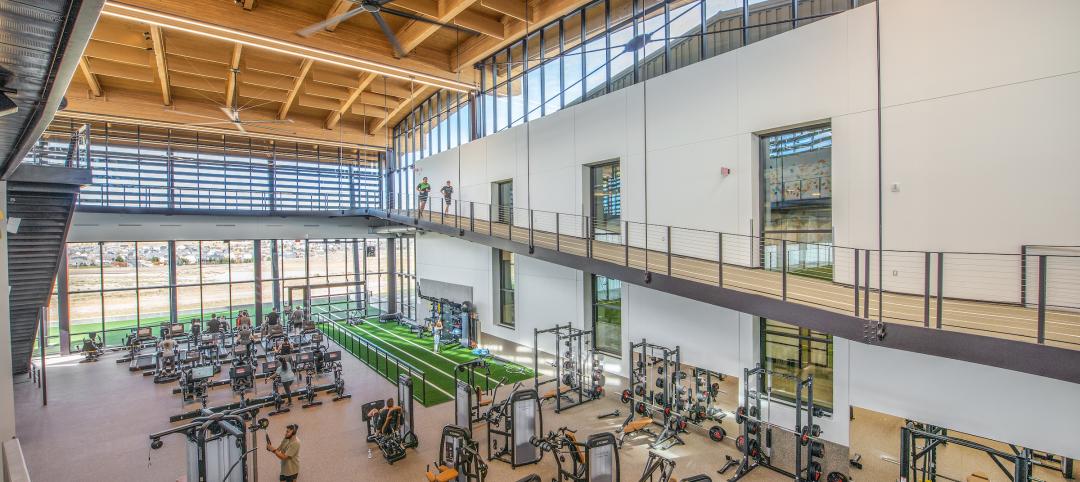Builders, developers, and owners are constantly complaining that high-performance buildings rarely get their due from appraisers who, they say, don’t have good measures to compare one building’s energy savings over another’s, or how those savings affect the value of the building.
The Appraisal Foundation, a nonprofit organization authorized by Congress to establish appraisal standards, is working methodically to alter this perceived image of cluelessness. Within the next few weeks, the Foundation is expected to issue the final draft of its guidance related to background and competency for appraisers valuing green buildings.
John Brenan, the Foundation’s director of appraisal issues, tells BD+C that states may elect to start adopting this guidance by early next year. And while the guidance would be voluntary, Brenan believes it may serve as a safe harbor for appraisers performing appraisals on green buildings.
The final guidance relating to the valuation of green buildings may offer methods and techniques to allow compliance with the Uniform Standards of Professional Appraisal Practice (USPAP).
That Board—which utilizes panels of experts, including those with green-building expertise—is one of three independent boards that comprise the Foundation, the other two being the Appraiser Qualifications Board and the Appraisal Standards Board.
The Foundation is also working on more specific guidance for appraisers to use when valuing the “greenness” of one- to four-unit residential buildings; and commercial, multifamily, and institutional properties.
Brenan says these guidances would contain methods and techniques that show appraisers what to look for and how to compare a building’s green features, materials, and construction management with other buildings in a market.
He expects an initial “exposure draft” of these guidances could be available for public comment in the first quarter of 2015. “Our hope is that all three advisories are adopted by late 2015, so the Foundation would have a tool kit for appraisers and regulators to use.”
At press time, Brenan was unable to elaborate on the proposed methodologies. And he is quick to note that appraisers don’t set values; “they just mirror what’s going on in a market.”
He did note, however, that the guidance being developed includes how to compare properties that have sold with like green features, and how to recognize market-to-market differences.
“One of the most interesting potential [guidances] would be to look at anticipated cost savings over an extended period of time,” he says.
Brenan points out that there is never going to be a “plug-in formula” for green valuation that fits all buildings. “It is still completely market-driven, and markets are stratified. Just because you have green features doesn’t mean the appraisal will be apples to apples. It’s kind of a sliding scale.”
That being said, Brenan readily acknowledges that there aren’t enough appraisers out there who are competent enough to assess how high performance should be factored into a home’s valuation. He’s speaking from experience. “I live in California, in a home that has a solar photovoltaic system, and the appraiser didn’t know what to do with it. So that became a little educational experience.”
Brenan says that anyone in the building, design, and construction sectors who wants to get involving in helping to develop these guidances can contact him directly at John@appraisalfoundation.org.
Related Stories
Project + Process Innovation | Mar 22, 2023
Onsite prefabrication for healthcare construction: It's more than a process, it's a partnership
Prefabrication can help project teams navigate an uncertain market. GBBN's Mickey LeRoy, AIA, ACHA, LEED AP, explains the difference between onsite and offsite prefabrication methods for healthcare construction projects.
Women in Design+Construction | Mar 21, 2023
Two leading women in construction events unite in 2023
The new Women in Residential + Commercial Construction Conference (WIR+CC) will take place in Nashville, Tenn., October 25-27, 2023. Combining these two long-standing events aligns with our mission to create an event most impactful for women in the $1.4 trillion U.S. commercial and residential design and construction industry.
Mass Timber | Mar 19, 2023
A 100% mass timber construction project is under way in North Carolina
An office building 100% made from mass timber has started construction within the Live Oak Bank campus in Wilmington, N.C. The 67,000-sf structure, a joint building venture between the GCs Swinerton and Wilmington-headquartered Monteith Construction, is scheduled for completion in early 2024.
Sports and Recreational Facilities | Mar 17, 2023
Aurora, Colo., recreation center features city’s first indoor field house, unobstructed views of the Rocky Mountains
In January, design firm Populous and the City of Aurora, Colo. marked the opening of the Southeast Aurora Recreation Center and Fieldhouse. The 77,000-sf facility draws design inspiration from the nearby Rocky Mountains. With natural Douglas Fir structure and decking, the building aims to mimic the geography of a canyon.
Architects | Mar 16, 2023
HKS launches partner diversity program to create a more diverse workforce and partnership network
Design firm HKS has launched a new partner diversity program that will work to build a more diverse AEC ecosystem. The HKS xBE program will give xBE firms (a term encompassing all disadvantaged businesses) and their members “access to opportunities to build relationships, pursue new work, and bolster innovation within the architecture and design professions,” according to HKS.
Sustainability | Mar 16, 2023
Lack of standards for carbon accounting hamper emissions reduction
A lack of universally accepted standards for collecting, managing, and storing greenhouse gas emissions data (i.e., carbon accounting) is holding back carbon reduction efforts, according to an essay published by the Rocky Mountain Institute.
Sports and Recreational Facilities | Mar 15, 2023
Georgia State University Convocation Center revitalizes long-neglected Atlanta neighborhood
Georgia State University’s new Convocation Center doubles the arena it replaces and is expected to give a shot in the arm to a long-neglected Atlanta neighborhood. The new 200,000 sf multi-use venue in the Summerhill area of Atlanta is the new home for the university’s men’s and women’s basketball teams and will also be used for large-scale academic and community events.
Sponsored | Cladding and Facade Systems | Mar 15, 2023
Metal cladding trends and innovations
Metal cladding is on a growth trajectory globally. This is reflected in rising demand for rainscreen cladding and architectural metal coatings. This course covers the latest trends and innovations in the metal cladding market.
Education Facilities | Mar 15, 2023
DLR Group’s Campus Planning Studio defines new leadership
Linsey Graff named Campus Planning Leader. Krisan Osterby transitions to Senior Planner.
Building Tech | Mar 14, 2023
Reaping the benefits of offsite construction, with ICC's Ryan Colker
Ryan Colker, VP of Innovation at the International Code Council, discusses how municipal regulations and inspections are keeping up with the expansion of off-site manufacturing for commercial construction. Colker speaks with BD+C's John Caulfield.
















